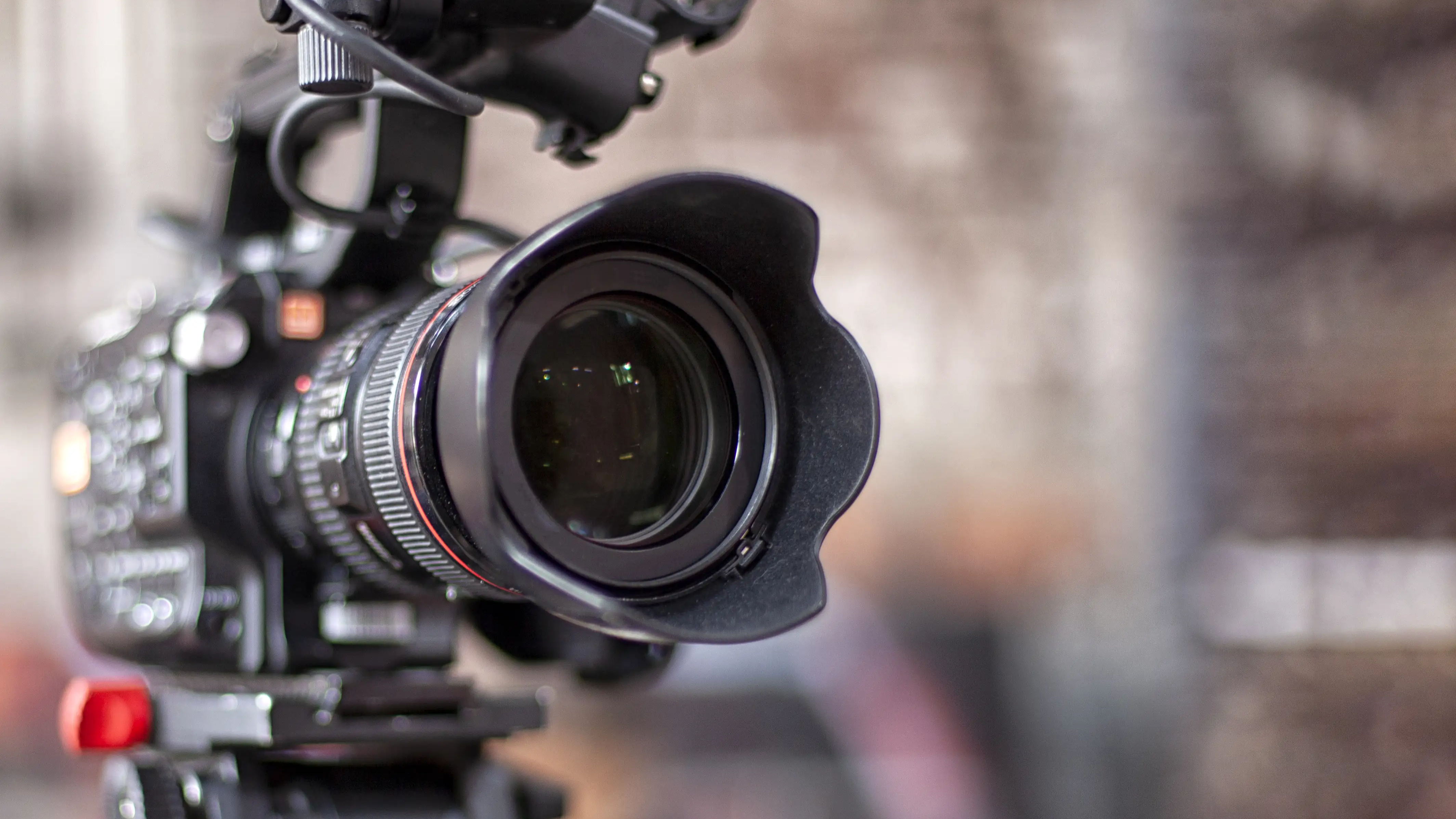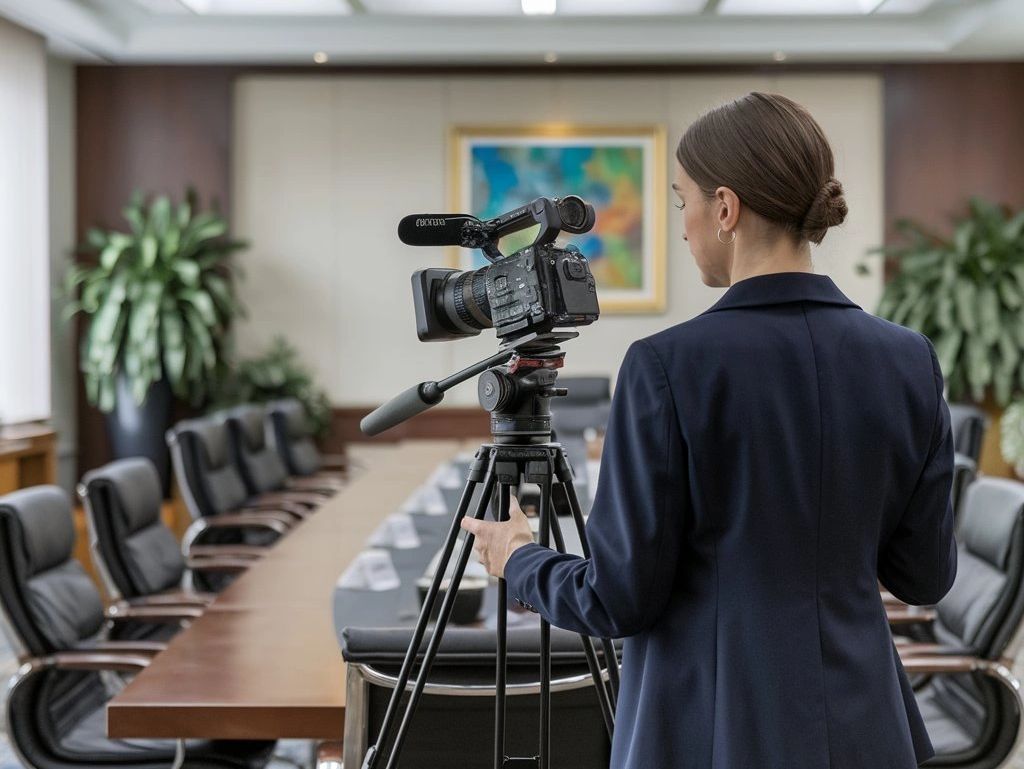Legal video depositions: A powerful tool for preserving truthful testimony
Wiki Article
The Relevance of Legal Video Depositions in Modern Legal Providers: What You Need to Know
Legal video depositions have actually ended up being vital in today's legal landscape. They give a multidimensional sight of witness testimonies that traditional records just can not match. By capturing both spoken and non-verbal interaction, these depositions improve the overall understanding of a witness's credibility. Nonetheless, the efficiency of video depositions depends upon various variables, including conformity with legal criteria and finest practices (legal video depositions). Checking out these components exposes their real importance in modern-day lawful servicesWhat Are Legal Video Depositions?
Lawful video clip depositions act as an essential device in the lawsuits process. They entail recording witness statements in a video clip format, capturing both non-verbal and spoken communication. This approach enables lawyers to record the behavior, expressions, and reactions of witnesses, giving a richer context for the statement. Commonly conducted in a controlled environment, these depositions are led by attorneys that ask inquiries while a court reporter records the dialogue. The resulting video clip can be important for test prep work, as it makes it possible for legal representatives to assess the trustworthiness of witnesses and improve their strategies. Additionally, legal video clip depositions can be utilized in various legal contexts, ranging from civil disputes to criminal cases. The visual and acoustic components of video clip depositions boost the discussion of proof, making it a crucial part in the modern-day lawful landscape. Generally, they add significantly to the performance and efficiency of legal proceedings.
Benefits of Video Clip Depositions Over Standard Techniques
Video depositions provide various advantages contrasted to standard techniques of taking witness statements. One significant benefit is the capacity to catch both audio and visual elements, giving an extra extensive record of the witness's statements. This twin style enhances clarity and enables legal professionals to reference specific subtleties during test prep work. Additionally, video clip depositions assist in remote involvement, making it easier for witnesses that may be inaccessible for in-person looks due to geographical constraints or wellness issues.Moreover, video depositions can quicken the general deposition process, lowering the time and prices connected with traveling and logistics. They likewise enhance availability, as tape-recorded depositions can be conveniently shared among lawful teams and referenced at any kind of time. This benefit adds to better situation management and preparation. On the whole, video depositions stand for a modern, reliable method to gathering witness testaments, aligning with the progressing demands of the legal occupation.The Duty of Body Language and Tone in Testimonies

In legal video clip depositions, body language and tone play essential roles in communicating a witness's reputation and trustworthiness. Nonverbal cues can supply understandings right into a witness's mood, affecting how their statement is regarded. Recognizing the influence of these elements is vital for jurors and attorneys alike when reviewing the dependability of a statement.
Nonverbal Interaction Insights
While spoken communication is frequently highlighted in legal testaments, nonverbal cues such as body language and tone play a necessary duty in communicating integrity and feeling. Onlookers of depositions might note that a witness's pose, gestures, and faces can substantially affect assumptions of integrity. Consistent eye call may signal self-confidence, while preventing stare might suggest dishonesty or discomfort. In a similar way, the intonation-- its pitch, quantity, and rate-- can pass on feelings of sincerity or uncertainty. Attorneys have to be in harmony with these nonverbal signals, as they frequently offer crucial context that enhances spoken words. Comprehending these nuances can boost the performance of depositions and influence the end result of legal process.Emotional Tone Influence
The emotional tone shared during lawful testaments considerably impacts exactly how a witness is viewed. Body movement, vocal inflections, and faces play vital duties in shaping the narrative of a testament. A witness displaying self-confidence through consistent eye contact and a calm tone can instill a feeling of reliability and engagement. Alternatively, signs of anxiousness, such as fidgeting or an unsteady voice, might result in skepticism concerning their account. The subtleties of emotional expression can affect the analysis of facts, making it necessary for lawful professionals to acknowledge these signs. In video depositions, the acoustic and visual elements incorporate, emphasizing the importance of psychological tone in communicating genuineness and reliability within the lawful procedure.Reliability and Dependability
An essential factor in establishing reliability and dependability throughout statements hinges on the witness's body movement and intonation. Onlookers commonly count on non-verbal signs-- such as eye call, pose, and motions-- to examine a witness's genuineness. For circumstances, a witness who maintains eye contact and displays open body language might be regarded as even more dependable and truthful than one who avoids eye call or shows up shut off. Furthermore, tone of voice plays an essential function; a stable, calm tone can enhance the integrity of the statement, while fluctuations in pitch or quantity may raise questions. Eventually, the combination of body movement and vocal tone substantially affects just how a witness's statements are received and analyzed in a legal context.Ideal Practices for Carrying Out Video Depositions
Performing video depositions requires cautious planning and implementation to assure a effective and clear discussion of testimony. It is important to pick a peaceful, well-lit place to reduce interruptions and secure ideal video clip high quality. The tools ought to be evaluated beforehand, including video cameras, microphones, and illumination, to stay clear of technical problems throughout the deposition.Next, parties included have to evaluate the layout and procedures ahead of time, ensuring that everyone comprehends their duties. The deponent ought to be informed on the procedure, consisting of how to react plainly and concisely.Additionally, preserving a specialist behavior throughout the session is important. This consists of avoiding talking over one another and confirming that visit their website all concerns are routed suitably. Lastly, it is crucial to tape-record the deposition in a format that allows for simple playback and evaluation, protecting the stability of the testament for future usage.Lawful Considerations and Compliance Issues
How do legal considerations and compliance issues affect the performance of video depositions? Lawyers have to browse a complex landscape of regulations, guaranteeing that video clip depositions stick to administrative regulations and criteria. Conformity with laws worrying personal privacy, approval, and taping techniques is necessary. For example, acquiring explicit consent from all parties entailed is needed to prevent legal repercussions.Additionally, the admissibility of video clip proof in court can rest on compliance with step-by-step demands. Making certain that the devices made use of satisfies technological standards is likewise important, as inadequate high quality can undermine the deposition's reliability.Moreover, lawyers must understand any type of specific state regulations that govern video clip depositions, as these can vary substantially. Failure to resolve these factors to consider can not just endanger the integrity of the deposition however also affect the total situation strategy, eventually influencing the client's lawful outcomes.Just How Video Depositions Effect Court Understanding
While video clip depositions can serve as powerful devices in legal procedures, their impact on jury understanding is substantial. The visual and acoustic aspects of video clip recordings offer jurors with a much more comprehensive understanding of witness temperament, integrity, and psychological reactions. This multimedia technique can enhance the jurors' ability to examine the integrity of testimony compared to standard text-based transcripts.Moreover, video clip depositions allow jurors to observe body language, intonation, and faces, all of which can affect their analysis of the witness's declarations. The visibility of a witness on screen can humanize them, promoting compassion and link, which might sway jurors' opinions. On the other hand, a witness that appears untrustworthy or evasive on video may cause unfavorable assumptions that influence a jury's decision. Ultimately, the dynamic nature of video depositions plays an essential duty fit how jurors interpret evidence and reach their verdicts.The Future of Video Depositions in Legal Practice
As improvements in innovation proceed to improve the lawful landscape, the future of video clip depositions is positioned for considerable development. Technologies such as fabricated intelligence, digital reality, and boosted video clip conferencing devices are anticipated to improve the deposition process and improve ease of access. Lawyers might use AI-driven analytics to examine witness integrity and instance stamina much more effectively.Moreover, the integration of digital truth might allow courts to experience immersive simulations of depositions, supplying deeper context and understanding. Additionally, the fad towards remote depositions is likely to linger, using higher flexibility for clients and lawyers alike.As remote work becomes significantly normalized, video depositions will likely come to be conventional practice, lowering expenses and time constraints related to standard methods. On the whole, these technological innovations guarantee to enhance the performance, effectiveness, and access of video depositions in lawful click site practice, inevitably transforming exactly how attorneys get ready for test.Often Asked Inquiries
How Much Do Lawful Video Depositions Normally Cost?

Can Video Clip Depositions Be Used in Any Type Of Kind Of Case?
Video depositions can be made use of in different sorts of situations, consisting of civil, criminal, and family legislation. Their versatility permits attorneys to present witness statements properly, adapting to the particular requirements of various legal scenarios.What Equipment Is Needed for a Video Deposition?
To carry out a video clip deposition, essential equipment includes a top notch electronic camera, microphone, illumination, and a trusted recording device. Additionally, a computer with modifying software application might be needed for post-production and formatting the last video clip.Just how Lengthy Does a Regular Video Clip Deposition Last?
A typical video clip deposition lasts in between 2 to four hours, relying on the complexity of the instance and the variety of questions postured. Extensive sessions might take place, however breaks are typically incorporated for participant convenience.

Are Video Depositions Admissible in Court?
Video depositions are typically acceptable in court, offered they follow lawful standards and rules of proof. Their usage boosts clarity and maintains witness testament, helping in the judicial process during tests and hearings. Legal video depositions have actually ended up being essential in today's legal landscape. Additionally, lawful video depositions can be used in different legal contexts, varying from civil conflicts to criminal situations. Additionally, video clip depositions promote remote involvement, making it simpler for witnesses who might be not available for in-person appearances due to geographical restraints or health and wellness issues.Moreover, video depositions can expedite the total deposition process, reducing the time and prices connected with travel and logistics. Making certain that the devices used fulfills technical standards is likewise legal video depositions essential, as inadequate high quality can undermine the deposition's reliability.Moreover, lawyers must be mindful of any details state legislations that control video depositions, as these can differ significantly. Additionally, the pattern towards remote depositions is likely to linger, providing better flexibility for customers and lawyers alike.As remote work comes to be increasingly stabilized, video clip depositions will likely end up being typical method, lowering costs and time restrictions linked with conventional approaches.Report this wiki page